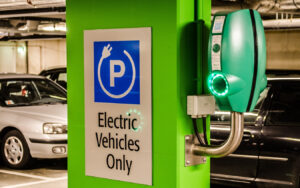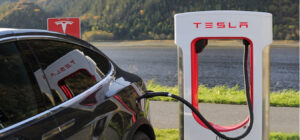PESTEL analysis of the electric car industry
This is a comprehensive PESTEL analysis of the electric car industry. It identifies the factors that are likely to drive the global demand for electric cars over the next many years. These include but not limited to government regulations on emissions standards, and changes in user preferences due to environmental concerns. As electric cars are generally expensive, the automobile manufacturers need to find ways to increase the adoption of these vehicles.
Political factors affecting the electric car industry
There are many political factors that can impact on the global electric car industry. For instance, the environmental concerns related to carbon emissions from conventional vehicles are leading the governments across the world to adopt rigorous regulations on automobile emissions. Some governments have even announced plans to ban the sale of conventional vehicles by a certain date. This political factor is expected to drive demand for electric cars over the next few years.

The adoption of electric cars is expected to increase due to tightening emission regulations in markets such as China, India, Japan, and South Korea. Such regulations have already been adopted in California, Canada, China, France, Germany, and the U.K.
However, a recent report suggests that countries such as Italy, Portugal, Slovakia, Bulgaria, and Romania want to delay a European Union plan to effectively ban the sale of new petrol and diesel cars from 2035 by five years (Abnett, 2022).
Another political factor that can significantly affect the electric car industry is the government subsidies on electric vehicles (EV). The government subsidies are expected to increase their adoption in various countries.
However, it should be mentioned that the sales of EV are still slow in many emerging and developing countries where the few models that are available remain too expensive for mass-market consumers. Only a small percentage of total cars sold are electric powered in Brazil, India, and Indonesia, though India has seen an increase in sales in recent years (IEA, 2022).
Economic factors affecting the electric car industry
A key part of discussion in this PESTEL analysis of the electric car industry concerns the global economic environment. The economic factors affecting this industry are primarily the fluctuations in the prices of oil. The demand for fuel-efficient vehicles, particularly hybrid and electric vehicles, is expected to increase in the coming years due to high fuel prices.
On the other hand, hybrid and electric vehicles are significantly more expensive than the conventional ones due to several factors such as production in small numbers, and the use of newer and expensive technology. In addition, public charging points are usually expensive and time-consuming. These factors may put many people off from buying electric vehicles.
Social factors affecting the electric car industry
The social factors affecting the electric car industry are primarily related to user preferences. The younger generation across geographies is more environment-conscious and prefers the use of electric cars to the conventional ones.
Luxurious electric vehicles with features such as luxury interiors, entertainment systems, and automatic safety measures are expected to be increasingly used for personal and commercial use. This is expected to increase the demand for such vehicles. According to a study by Data Bridge Market Research (2023) the global luxury car market is expected to be valued at $350.37 billion by 2029.
However, the growing popularity of ride-sharing services such as Uber, Lyft, and Bolt has reduced the need for private vehicles. Some analysts argue that ridesharing will impact on vehicle manufactures negatively in the long term, though others view the opposite.
Technological factors affecting the electric car industry
Another important area of examination in this PESTEL analysis of the electric car industry is the technological environment. The technological factors affecting the electric car industry are primarily related to the improvement in battery technology and reduction in manufacturing costs.
The improvement in battery technology has reduced the time required to charge the batteries and resulted in reduced energy loss as well. This has made it easier and convenient to charge electric cars.
Dans (2021) reports that battery technology continues to improve continuously, meaning that people could soon be able to drive hundred miles on a five-minute charge. However, the determination of which charging technology being the gold standard is yet to be agreed upon.

Environmental factors affecting the electric car industry
The carbon emissions from electric cars in Europe are at least three times less than the emissions from conventional vehicles. Electric cars can also help with noise pollution as they are relatively quieter, particularly in cities and states where speeds are usually low. These environmental factors are expected to drive the adoption of electric cars over the next many years.
Legal factors affecting the electric car industry
Legal environment is the last part of examination in this PESTEL analysis of the electric car industry. The legal factors affecting this industry primarily include standardisation and regulatory compliance. Wording of vehicle warranty, location of the charge points, ownership of charging stations, and many other issues have legal implications that the stakeholders of this industry need to be aware of. These issues are dealt with different ways in different countries.
Summary of PESTEL analysis of the electric car industry
Thus, it is very clear that there are many factors that can drive the adoption of electric vehicles. Government regulations on emissions standards, changes in user preferences due to environmental concerns, improvement in battery technology, and the development of autonomous electric vehicles can significantly impact on the adoption of electric vehicles. However, there are various political, economic, social, technological, and legal factors that can slow down the rate and speed of adoption.
We hope that you like this PESTEL analysis of the electric car industry. Please share this article link on social media to support our work. You may also like:
Advantages and disadvantages of electric cars
PESTEL analysis of the automobile (automotive) industry
SWOT analysis of General Motors (GM)
Marketing mix of Volkswagen (4Ps of Volkswagen)
Last update: 01 September 2023
References:
Abnett, K. (2022) Five countries seek to delay EU fossil fuel car phase-out, available at: https://www.reuters.com/markets/europe/five-countries-seek-delay-eu-fossil-fuel-car-phase-out-document-2022-06-24/ (accessed 12 July 2022)
Dans, E. (2021) The five factors driving the mass adoption of electric vehicles, available at: https://www.forbes.com/sites/enriquedans/2021/01/24/the-five-factors-driving-the-mass-adoption-of-electricvehicles/?sh=46424a9839d6 (accessed 11 July 2022)
Data Bridge Market Research (2023) Global Luxury Car Market – Industry Trends and Forecast to 2029, available at: https://www.databridgemarketresearch.com/reports/global-luxury-car-market (accessed 01 September 2023)
IEA (2022) Electric car sales continue to break records, available at: https://www.iea.org/reports/global-ev-outlook-2022/executive-summary (accessed 11 July 2022)
Author: M Rahman
M Rahman writes extensively online and offline with an emphasis on business management, marketing, and tourism. He is a lecturer in Management and Marketing. He holds an MSc in Tourism & Hospitality from the University of Sunderland. Also, graduated from Leeds Metropolitan University with a BA in Business & Management Studies and completed a DTLLS (Diploma in Teaching in the Life-Long Learning Sector) from London South Bank University.



